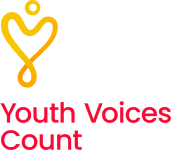One of the most integral parts of oneself is one’s identity. What’s more, what humans thrive on is the expression of that sense of self and individuality. Creatures such as humans with complex social structures and social expressions have progressed and flourished in spaces with less limitations on their expression as individuals. Going deeper into the topic of self-identity, it can be a very broad subject to touch upon. Self-identity is how you identify and define yourselves. It is your perception of specific and selective traits, qualities, abilities, and characteristics that represent you. The certain aspects and the weight you give to those distinctive attributes are formulated by the individual person. It is extremely important to have a broader sense of self as these characteristics are such a fundamental part of a human being.
Discussing identity
As we discuss identity, it is important to identify the two types of identities as they are very integral to how internal and external factors affect our sense of self. There is personal identity and social identity.
Our personal identity is how we perceive ourselves; you might find that when we are entering adolescence especially for young people, we go through rapid changes in response to peers, family, school and among other social environments. Our self-identity shapes our perceptions of belonging. On the other hand, our social identity is how others perceive us. Society categorizes individuals according to broad socially defined labels. An example can be if you are a feminine presenting man, you might be categorized as gay even if you personally don’t identify with that sexuality.
Largely depending and defining oneself on one aspect of your identity can be somewhat detrimental, since your self-identity, mentality and personal self is a constantly changing and growing thing. Aspects of your self-identity can change and throw you into a confusing journey to personal discovery. For example, if your job and personal success was a big part of your identity and you lose that job or lose interest in a part of your identity that you put so much weight on, you will then start to struggle to find your self-identity and it will shake the foundations of yourself by the fact that such a large part of your identity was taken away. Most people base their identity in accordance to social context or social roles rather than personal characteristics, so it is important to not to limit yourself and have a broader sense of self to free oneself from internal conflicts.
In a progressive and forward-thinking era, talks about self-improvement and being in touch with our identity and the importance of self-discovery are essential to a healthy lifestyle. Today’s society still upholds a backward mindset when it comes to mental health and self-growth or even such topics as gender identities. These aspects of self and the active participation of self-discovery are treated as unimportant or feminine or seen negatively. It drives people to suppress or disassociate with certain attributes of themselves, which affect their mental health which in turn affect their day-to-day life.
Examples of such practices are the transphobia and homophobia that is prevalent in today’s society that drives LGBTIQ youth to internalize their homophobia and drives trans youth to struggle with depression and body dysmorphia. By being cut off from such an essential part of their identity, they are discontent in life and suffer mentally and this sometimes even leads to suicide.
In conclusion the word “identity” is used to suggest permanency, stability, and general unchangeability. But more out of ignorance than truth. We now know that it is growing, changing, and something that is in a state of constant rediscovery throughout one’s life. It is such an important part of our interactions that it has now become matters of negotiation for your place, purpose, and presentation in society and day-to-day life. What’s more, it becomes essential to a person’s mental health and to a happier, productive and successful life.
Discussing gender
When talking about identities, the aspect of gender is something that cannot be ignored as it ties itself with society as well. True happiness and contentment lie in who you are. Humans naturally being social beings shackle themselves to the perceptions of others, and in the process of trying to fit into the so-called acceptable identities or templates, they forget themselves. They forget or ignore some of the most integral and interesting parts of their identity that make them unique. In an era such as the one we live in, one debatable topic is that of gender identity and expression, an essential part of every human being. Gender is a concept that can be broken down into three categories: gender identity, gender suppression, and physical sex.
Gender identity is the internal sense and personal experiences of one’s own gender. It is a concept that is determined by oneself and their own experience of what their gender is and not something that can be changed by an external factor unless the change happens within one’s own growth. Gender identity has been confused a lot with sexual orientation, as with many terms are related to gender. Sexual orientation is who you are attracted to depending on your gender but gender is an internal awareness that develops throughout your lifetime. For a very long-time, gender had been classified into binaries (male and female) but with further societal progression, more spaces for people who don’t fit into these narrow concepts have opened up. People who do not identify as a man or a woman may identify as both, neither, between or not gendered at all. Gender will not always match with a person’s assigned sex by birth and those who feel discontent and do not align with their biological sex may make physical and social changes to express their gender identity.

Gender expression is how a person outwardly shows their gender identity. It could include clothing, makeup, and hairstyles which are physical expressions but there are also more social ones like changing their names and pronouns. What’s more, behavioral expressions such as masculinity, femininity, and androgyny can also constitute parts of your gender expression. As you grow and discover your gender identity and expression, it is extremely important to express and come to terms with your own identity. Disassociation or suppression can cause great harm to a person mentally. This is mostly caused by societal pressure, discrimination, family expectations, homophobia, and many other factors. Gender expression, gender identity, and sexual orientation in many young adults which develop a lot of the time around puberty are suppressed due to societal norms and stereotypes. One such example would be that it usually comes as a shock if you find a masculine man who identifies as gay, which is stereotypically seen as a feminine sexuality. This could also come as a feminine man who is heterosexual or a tomboy girl who is heterosexual. In relation to gender, a person who has male genitalia and presents themselves as feminine can be a shock since gender is misconstrued to fit your biological sex.
Gender norms have been misinterpreted and the effects have seeped into the most basic parts of our lives. We don’t even pay attention to simple things such as colors like pink being considered feminine and blue masculine which can negatively be used in a patriarchal society which views femininity as lesser. Whatmore, it is also dictated by what things a certain sex can and cannot do. One such example is how men crying is a sign of weakness. This implies that the opposite sex is weak for showing emotions, when it is actually healthy to process emotions such as grief and sadness. Such pressures of society could lead to depression, body dysmorphia, internal homophobia, and even suicide as it severely effects the mental health and state of LGBTIQ individuals.
Lastly, gender is a cultural, biological, and social construct that cannot be changed unless the change comes from within. It is a very broad concept that does not always fall into the binaries, the way the larger society views the world. Viewing it from that perspective can be detrimental to yourself and others as it can narrow the self-discovery of your own gender identity, an essential part to self-growth and happiness.







